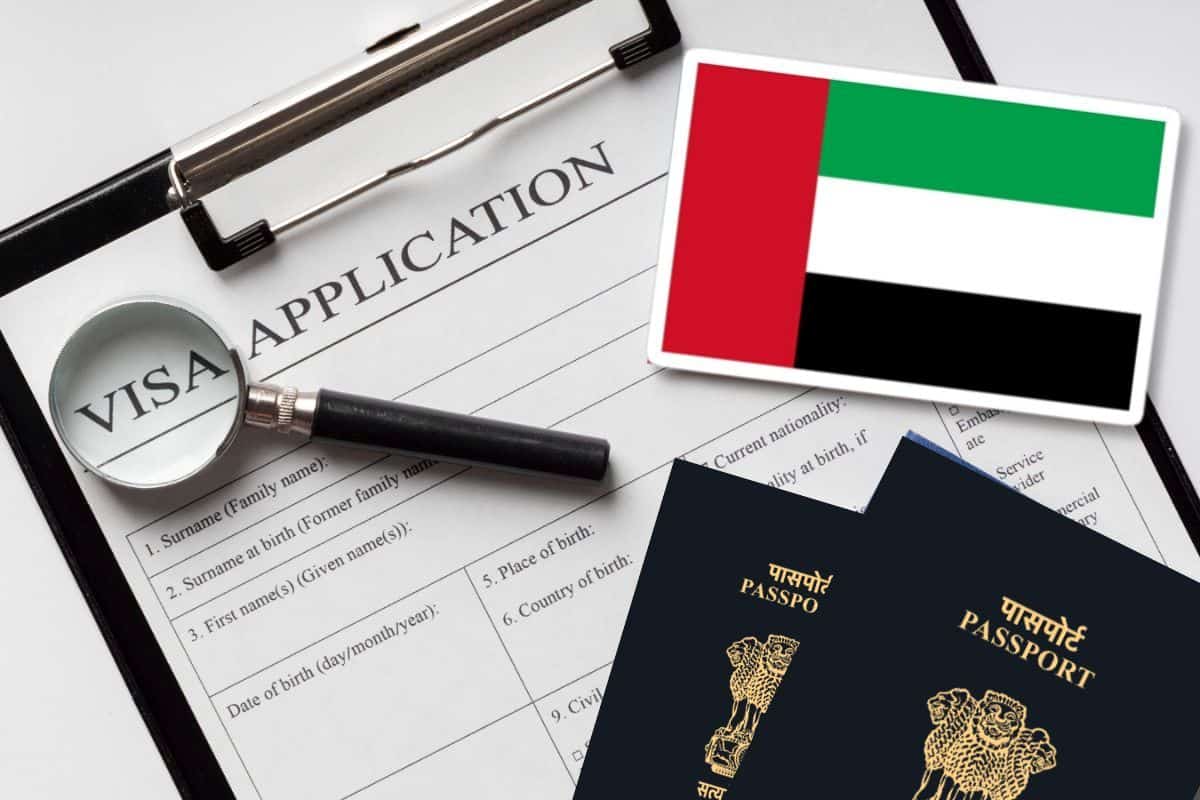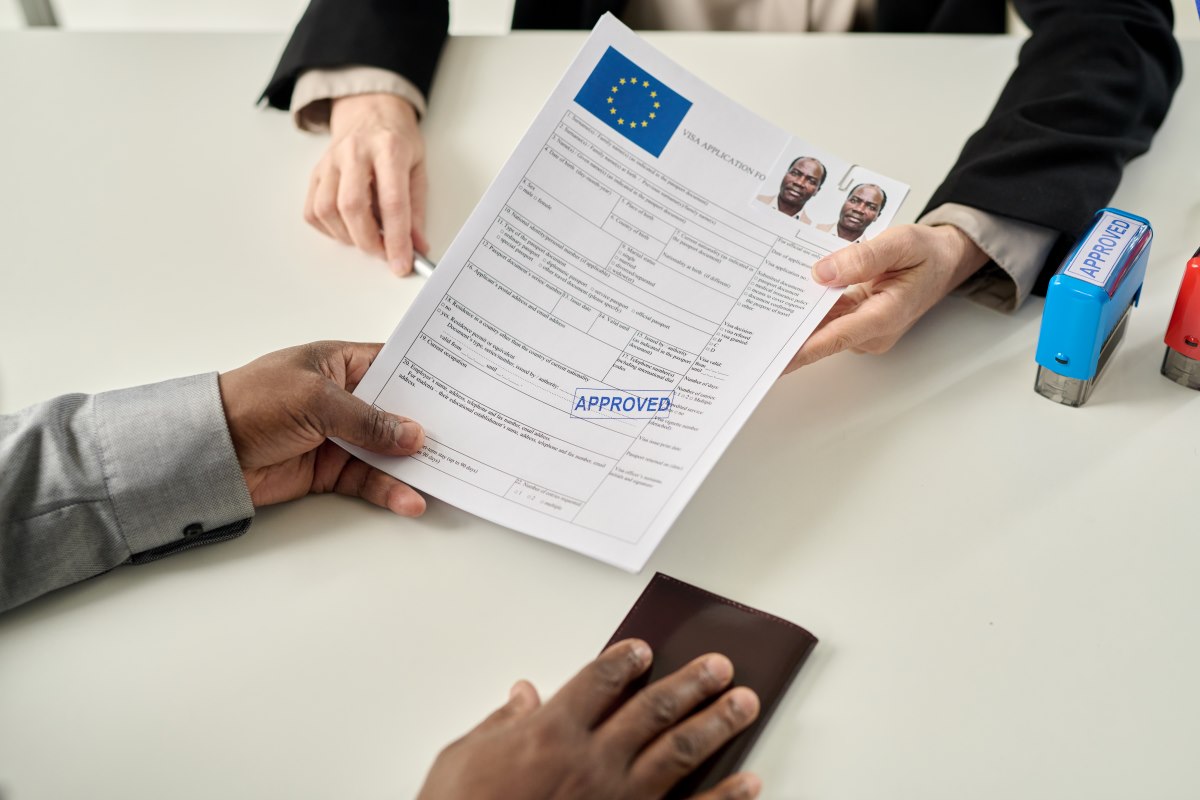
Premium Starting ₹395

24x7 Missed Call Facility


How to Check UAE Visa Application Status in India?

The United Arab Emirates is among the most popular foreign destinations for Indian job seekers. With a plethora of opportunities across various fields, this Gulf country has much to offer to the right candidates.
Apart from jobs, UAE is also known for its incredible scenic beauty and cultural heritage, thereby drawing travellers from India as well. Therefore, regardless of whether you are travelling there for a job or for leisure, applying and checking for UAE visa status is crucial.
Let’s take a look at how you can go about it!

Table of Contents

Different Types of UAE Visa Status and Their Meaning
Visas generally go through various stages before approval. Visit the General Directorate of Residency and Foreign Affairs (GDRFA) website to know your status. Once you've located the visa services section, enter the relevant details asked for. Based on general visa application processes, here are some possible statuses you might encounter:
What Information Do You Need to Check Your UAE Visa Application Status?

Knowing the status of your UAE visa application can be nerve-wracking. Luckily, the UAE government lets you easily track your application online. Here's a detailed guide on what information you'll need and how to use it:
Application Number: This is the most crucial piece of information. It's a unique number assigned to your application when you submit it. You'll find this number on the application receipt or any confirmation documents you received from the visa service provider.
Reference Number (Optional): Some visa service providers might also give you a reference number. While it is only sometimes mandatory, having it can help narrow your application search.
Receipt Number/Reference Number: Visit the General Directorate of Residency and Foreign Affairs (GDRFA) website and look for the inquiries section. Enter the receipt or reference number as asked and check your status.
How to Check UAE Visa Status Offline?
You can check your UAE visa status using one of two modes: offline or online. The offline method is generally preferred for an enquiry. However, you can also call and verify your UAE visa status.
Regardless, here is a look at how to check UAE visa status offline.
The Federal Authority for Identity and Citizenship, or the ICA, maintains all UAE visa records. To check the status of your UAE visa without using the Internet, dial the toll-free number for the ICA—600522222.
You can check the UAE visit status on this number and the residence visa status for UAE.
How to Check UAE Visa Status Online?
Many applicants wonder how to check their visa status for the UAE online since it is a faster method. Individuals can perform this online check using either a passport number or file number.
The latter option is too complicated. Therefore, we have elaborated on how to check UAE visa status using passport numbers only.
Here is the detailed process -
Step 1:- Visit the ICA Smart Services Portal
Visit the official ICA (Federal Authority for Identity and Citizenship) website. This platform helps you track UAE visa applications and check entry and exit records.
Step 2:- Choose Your Visa Type
Once on the portal, select your visa type:
Residents and employees in UAE (for work or family residency visas).
Tourist/Visit visa holders (for short-term travel).
Selecting the right category ensures accurate tracking of your UAE visa status.
Step 3:- Enter Passport Details for UAE Visa Status Check
Please carefully fill in the required information, such as your passport number (as mentioned in your visa application), nationality, and expiry date. This is the simplest way to check your UAE visa status with your passport number without dealing with complicated file numbers.
Step 4:- Complete Captcha and Search
Solve the captcha and hit “Search.” If all details are entered correctly, your UAE visa application status—including visa validity, entry, and exit records—will be displayed on the screen.
This effectively concludes the procedure to check UAE visit visa status online with passport number.
Alternate Method: Check Dubai Visa Status via GDRFA
Suppose your visa was explicitly applied for Dubai. You can also use the GDRFA (General Directorate of Residency and Foreigners Affairs) official website or mobile app for a Dubai visa status check. However, GDRFA only covers Dubai-related visas, so always use the ICA portal if your visa is for another emirate (like Abu Dhabi or Sharjah).
Before you can check the status of your application, however, you must ensure proper submission of your visa application.
How to Check UAE Visa Status with Passport Number?
Unfortunately, you cannot check your UAE visa status solely with your passport number. There are two main scenarios to consider. You'll need your application reference number and passport information if you're looking for an update on a recently submitted application. Here's how to proceed:
Step 1:- Visit the Official UAE Government Portal
Head to the official UAE government portal to check your UAE visa status with passport number.
Step 2:- Locate the Application Status Tracking
Look for a section on tracking visa applications. It might be labelled "Track Your Application Status" or something similar.
Step 3:- Enter Required Details of Your UAE Visa Application
Input your application reference number. You might also need to provide your passport details, such as nationality or passport number (depending on the portal).
Step 4:- Submit and Review the Status of Your UAE Visa Application
Click on the designated button (usually "Search" or "Submit") to retrieve your application's current status. This will indicate where your application stands in the processing (e.g., "Submitted," "In Progress," or "Approved").
Common Issues Related to UAE Visa Status
You should not face any issues if you fill out your application perfectly. However, common problems related to UAE visa status can include:
Incomplete or Incorrect Application Forms:
Submitting incomplete or incorrect application forms is a frequent reason for rejections. Any missing information or errors in the provided details can lead to an automatic rejection.
Incorrect Visa Category:
Applying for the wrong visa category can lead to rejection. It is crucial to apply for the visa category that best suits your purpose of travel and to meet all the eligibility criteria for that category.
Previous Immigration Violations:
A history of immigration violations, such as overstaying a previous visa or being deported from the UAE, can negatively impact your current visa application. Any prior violations are scrutinised closely.
Criminal Record:
A criminal record can be a significant barrier to obtaining a UAE visa. While not all offences will result in rejection, serious crimes or repeated offences can result in denial.
Failure to Attend Biometric Appointment:
Part of the visa application process involves attending a biometric appointment to provide fingerprints and a photograph. Please attend this appointment or reschedule it to avoid an automatic rejection.
Suspicion of Intent:
If the visa authorities suspect that the applicant intends to overstay or work illegally in the UAE, the visa application will likely be rejected. It is important to clearly state the purpose of the visit and provide supporting evidence to mitigate any such suspicions.
Inconsistencies in Application:
Any inconsistencies in the information provided, such as differing details between application forms and supporting documents, can raise red flags and lead to rejection.
Common Reasons for UAE Visa Rejections
Your visa could get rejected due to various reasons. Common reasons for UAE visa rejections include:
Incomplete Documentation:
Failure to provide all required documents or submitting incomplete forms can lead to visa rejection. Ensure documents are in the requested format (photocopies, originals, translations).
Incorrect Information:
Incorrect or inconsistent information in the visa application can result in rejection. Don't inflate your income or qualifications. Be truthful about your purpose of visit.
Previous Violations:
Applicants with a history of overstaying visas, legal issues, or immigration violations may face rejection. A criminal record or history of deportation from the UAE can significantly impact your application.
Financial Insufficiency:
The inability to demonstrate sufficient financial means to support oneself during one's stay in the UAE can lead to visa rejection. If you're self-employed, provide strong proof of consistent income.
Security Concerns:
Applicants flagged for security reasons or with connections to individuals or organisations deemed a risk may face rejection. Being associated with controversial activities may raise security concerns.
Health Concerns:
Certain health conditions or failure to meet medical requirements may result in visa rejection, particularly for long-term or employment visas. For long-term visas, some health conditions require medical clearance.
Overcrowded Labour Market:
If your profession is saturated in the UAE, your visa application might be rejected in favour of local candidates—research labour market trends before applying for work visas.
Lack of Sponsorship:
Failure to secure a sponsor or provide adequate sponsorship documentation for visas requiring sponsorship can lead to rejection. Meet all sponsor requirements, such as minimum salary for employment visas.
Dubious Travel History:
Applicants with suspicious travel histories or denied visas to other countries may face rejection. Large, unexplained gaps in their travel history might need explanation.
Incomplete Travel Itinerary:
Failure to provide a clear travel itinerary or purpose of visit may result in the rejection of a tourist visa. Have a clear itinerary outlining your planned activities and accommodation.
List of UAE Embassy and Consulate in India
List of Indian Embassy and Consulate in UAE
Key Things about UAE Visa Validity, Expiry & Issuance
Tourist Visas:
Typically valid for 30 days, with options to extend twice for an additional 30 days each. Extensions must be applied for before the current visa expires.
Work Visas:
Entry permits are valid for 2 months from the date of issue, allowing a 30-day stay. After entering the UAE, employees must apply for a labor card.
Residence Visas:
For company registration, the visa is valid for 3 years and can be renewed.
Golden Visas:
Issued for 5 or 10 years to eligible individuals, including investors and specialists.
Visa on Arrival:
Indian citizens with valid US, UK, or EU visas may be eligible for a visa on arrival in the UAE for short stays; it's advisable to check the latest regulations.
Passport Requirements:
Ensure your passport has at least six months' validity from the date of visa application and contains sufficient blank pages for entry and exit stamps.
Overstay Penalties:
Failing to extend your visa on time can result in overstay penalties.
Centres for UAE Visa Application in India
Check out the list of application centres across India below!
Individuals can also check the status of their UAE visa cancellation online by passport number if their planned trip is cancelled due to unavoidable circumstances.
Nevertheless, the process of checking UAE visa status has been simplified considerably, thanks to the introduction of the online portal and mobile application.













